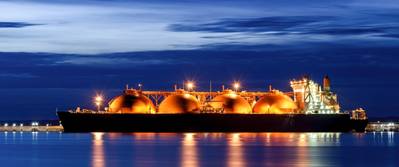ExxonMobil Considers Importing LNG to Australia
ExxonMobil Corp, southeastern Australia's biggest gas supplier, is considering importing liquefied natural gas (LNG) to help plug a looming gas shortage from 2021 and protect its market share.
The move would compete with plans by both Australia's no.2 energy retailer AGL Energy to start importing LNG by 2021 and a consortium involving Japan's JERA to start imports from 2020.
ExxonMobil is also stepping up exploration off the coast of Victoria and considering developing a gas field called West Barracouta close to an existing field, it said in an emailed statement on Monday.
"Combined with the existing Gippsland resource and infrastructure, an LNG import facility could ensure ExxonMobil can continue to meet our customers' needs," the company said.
The facility could open by 2022, it said.
Australia's energy market operator warned in March that Victoria, the country's biggest gas consuming state, could face shortages from mid-2021 due to a rapid drop in supply from the the Gippsland Basin Joint Venture, owned by ExxonMobil and BHP Billiton (BHPLF).
Output from the Gippsland Basin, the state's mainstay supplier over the past 50 years, is expected to fall to just half of 2018 levels by 2022, it said.
Even though Australia is set to challenge Qatar as the world's top LNG exporter, local gas supplies are under threat due to field declines and long-term export contracts.
ExxonMobil could use a lot of its existing infrastructure at Longford in Victoria for an LNG import facility.
The company declined to comment on an estimate by Macquarie analysts cited in The Australian newspaper that it could build import facilities for around A$100 million ($74 million), less than half the estimated cost of the two rival LNG import plans.
AGL is working toward a final investment decision for its import plans by June 2019.
"If we saw some new supply come to market that fundamentally changed that market dynamic, we would revisit the business case, but we haven't seen that to date," AGL General Manager Phaedra Deckart told Reuters in an interview last week.
She said rising LNG prices would not deter the company from going ahead with the plan.
"It's not about what price can we bring LNG into the market. It's about meeting the needs of our 1.4 million gas customers and the 10 large industrial customers that have executed (tentative agreements) with us and are looking for a new source of supply to meet that shortfall beyond 2020."
($1 = 1.3450 Australian dollars)
(Reporting by Sonali Paul; editing by Richard Pullin)

